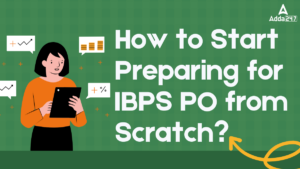Study Notes are really essential and effective while preparing for any competitive exam. We all have been making and studying through study notes since our childhood. Its one of the most important steps of preparation and a very effective tool for last minute revision. Your mind collects data of random details in the form of keywords and memory maps visualized during preparation. Jotting down main phrases & keywords, making memory maps and highlighting important facts help one speed up the learning process.
Conjunction
Definition: A conjunction is a word which connects phrases, words, clauses or sentences to make a complex sentence and also brings about relationship between the elements which are thus joined. There are three different kinds of conjunctions–coordinating, subordinating, and correlative.
1. Coordinating conjunctions: Coordinating conjunctions are the words that connect individual words, phrases, and independent clauses of equal rank or importance.
and, or, but, so, nor, for, yet, also, either….or, neither…nor, etc are some of the Coordinating Conjunctions.
Further Coordinating conjunction can be divided into four parts:
(i) Adversative: To indicate contrast between two statements.
Examples: still, but, only, yet, whereas, while, nevertheless, etc
Example Sentences:
- It was very hot, still I have not switched on fan.
- He hates me, yet I love her.
(ii) Cumulative or Copulative conjunctions: To add one statement or fact to another.
Examples: both….and, not only….but also, as well as, too, also, moreover etc
Example Sentences:
- The principle as well as the director has accepted to conduct the examination next week.
- Shanky is both smart and brave.
(iii) Disjunctive or Alternative conjunctions: To indicate choices between two statements.
Examples: neither…nor, either….or, else, neither, nor, otherwise, etc
Example Sentences:
- Amar will be either in the room or on the roof.
- He is good neither at games nor at studies.
(iv) Illative: To express inference in the sentence.
Examples: for, so, yet, hence etc
Example Sentences:
- I know you must be tired, so i will let you rest.
- Rekha is honest and amiable, hence Raj is revered.
2. Correlative Conjunctions: In this, a pair of conjunctions must be used together. You have to use both of them in different places in a sentence to make them work.
Rule: When conjunctions are used as correlatives, each of the correlated words should be placed immediately before the words to be connected.
Examples: Either—or, Neither—nor, Both—and, Though—yet, Whether—or, Not only—but also
Example Sentences:
- She visited not only Kolkata but also Jaipur.
- Deepak can do either technical support or development.
3. Subordinating Conjunctions: Used to join a clause to another in order to get full meaning. It joins a subordinate (dependent) clause to a main (independent) clause.
Main Clause + Subordinate Clause
Subordinate Clause + Main Clause
Subordinate clause cannot stand alone as a sentence as it does not provide complete meaning. It is generally depends on main clause. A main clause contains a subject and a verb. A main clause can stands alone as a sentence as it can provide you complete meaning.
Examples: In order that, on condition that, even if, so that, provided that, as though, as well as, as if, etc.
Example Sentences:
- She had died before the doctor arrived.
- Although it is raining, it is too hot today.
- We played cricket while pitch was little wet.





 GA Capsule for SBI Clerk Mains 2025, Dow...
GA Capsule for SBI Clerk Mains 2025, Dow...
 The Hindu Review October 2022: Download ...
The Hindu Review October 2022: Download ...
 How to Start Preparing for IBPS PO from ...
How to Start Preparing for IBPS PO from ...





